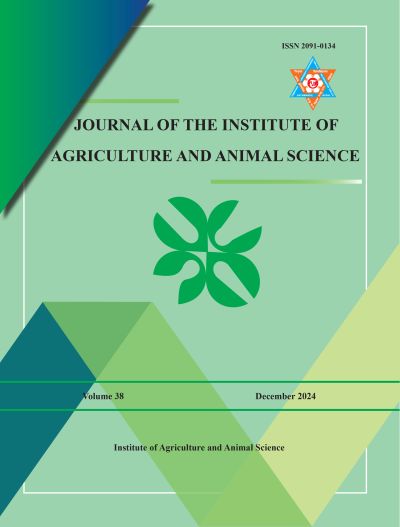Socio-Economic Issues on Pesticide Use
DOI:
https://doi.org/10.3126/jiaas.v38i1.73086Keywords:
agrochemical usage, market, organic agriculture, pesticide managementAbstract
The intensification and globalization of agriculture, particularly with the advent of the Green Revolution in the 1960s, led to the widespread use of synthetic chemicals, which became an integral part of farming systems. However, the extensive use of pesticides has been criticized for its negative impacts on the environment, human health, beneficial insects, and the ecosystem as a whole. In many cases, the drawbacks of pesticide use may outweigh its benefits. The challenges associated with efficient pesticide management are not solely technical or financial; moral concerns, public perception, and policy-related issues also significantly reduce pesticide usage. Moreover, convincing small farmers of the economic benefits of alternative practices remains difficult due to inefficient markets that fail to value the ecosystem services provided by chemical-free farming adequately. This paper thoroughly discusses overlooked issues in efforts to minimize agrochemical usage and explores economic tools that can help mitigate associated externalities.
Downloads
Downloads
Published
How to Cite
Issue
Section
License
Copyright (c) 2024 Journal of Institute of Agriculture and Animal Science

This work is licensed under a Creative Commons Attribution-NonCommercial 4.0 International License.

